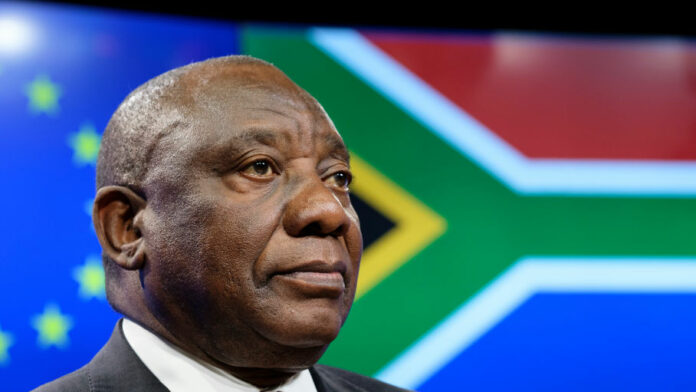
AFRICAN countries must be allowed to develop new oil and gas reserves without compromising the continent’s focus on reducing its carbon footprint, said South African president Cyril Ramaphosa.
Last year, Shell was prohibited from conducting a seismic survey on the Wild Coast after environmental activists and some members of the community had taken the international oil and gas giant to court. At the time, South African Mines Minister Gwede Mantashe lashed out at activists, saying the country’s economic development is “oppressed in the name of environmental protection”.
In his keynote address on the second day of the 2022 Mining Indaba, Ramaphosa emphasised that African countries need to be given the space to develop and grow even if it means exploring for fossil fuels.
“To be able to confront the energy insecurity, it’s critical that South Africa be given the necessary development space. We must be allowed to transition (to clean energy) in an orderly and sustained manner. Any transition from coal as an energy source must happen in a realistic and sustainable way.”
Ramaphosa’s comments on energy security were made as South Africa was facing a fresh round of power cuts (also known as load shedding) which commenced on 11 April. The news website Daily Maverick estimated the country had lost some 23 days to load shedding before the last round.
The president said the South African government has made significant progress with policy reform to facilitate new electricity generation. Most notable was amended regulations to allow mining companies and other private sector players to generate their own electricity of up to 100MW without having to apply for a licence.
These amendments were announced in June 2021, but the energy regulator Nersa and the Department of Mineral Resources and Energy (DMRE) have not addressed the red tape to get this extra power into the country’s energy system.
Ramphosa vowed that red tape would be removed to enable the registration of these energy generation projects and to accelerate environmental approvals to expedite the linkage of such projects to the grid.
Grave concerns
In his speech, Ramaphosa acknowledged that the mining industry in South Africa is facing significant challenges. “It is a matter of grave concern that South Africa has fallen into the bottom 10 of the Fraser Institute’s Investment Attractiveness Index rankings. We are currently standing at 75th of 84 our worst ever ranking.”
He said this ranking makes the removal of the various impediments to growth in the industry all the more urgent.
Of particular concern are South Africa’s dysfunctional rail system, inefficient ports and unreliable electricity supply. Ramaphosa said he hopes that proposals from private operators to be allowed to operate Transnet’s dedicated coal, iron ore and manganese lines will be further explored during the Indaba.
Ramaphosa praised the South African Minerals Council and its members for its partnership with government in a number of areas, such as the rollout of a vaccine programme. “The partnership … stands as a fine example of how the private sector can support a nation’s development agenda.”
According to Ramaphosa, the 150 year old mining industry in South Africa is a “continuous sunrise industry” and South Africa, as a world leader in platinum group metals, is “perfectly poised to provide in the world’s growing demand for PGMs in the move to cleaner energy.
He was particularly excited about unlocking possibilities in the hydrogen economy and made special mention of Anglo American Platinum’s (Amplats’) recent unveiling of the world’s largest hydrogen mine haul truck which will operate with zero carbon emissions. The vehicle will be powered by a hybrid of hydrogen and fuel cells and lithium batteries.
Amplats unveiled the truck last Friday at its Magalakwena mine in Limpopo and Ramaphosa attended the launch. “I looked like a young boy excited over a toy,” Ramaphosa said. “It was amazing to see the innovation in our industry. When I get fired from my job, I’ll apply for a job to work this type of truck.”











